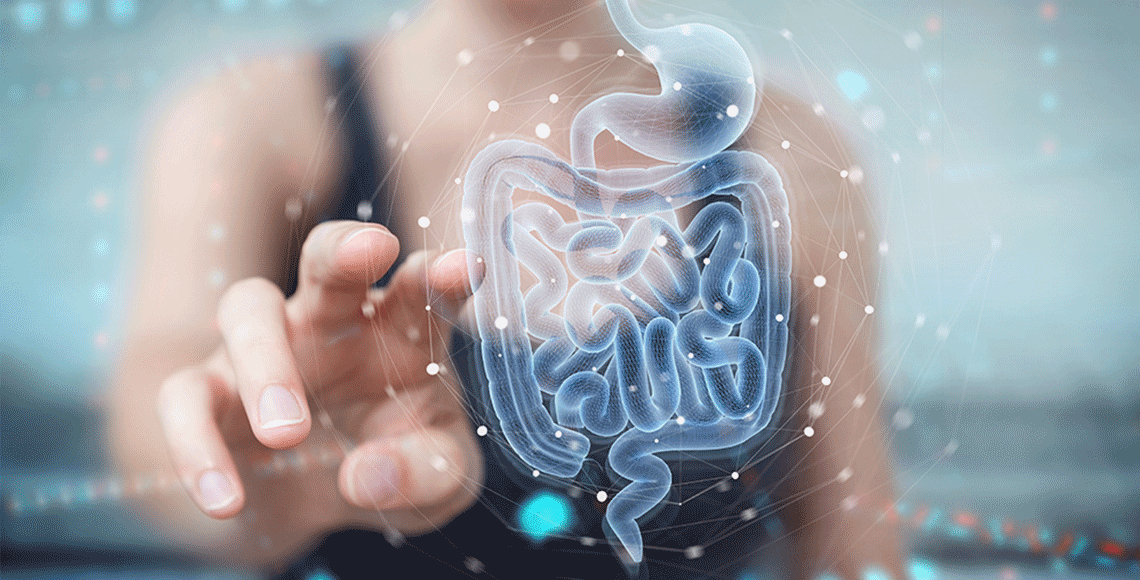7 Tips for Better Digestion
As we get older, the years seem to speed up, yet our bodies feel like they are slowing down. And our digestive systems are no exception. The contractions in the oesophagus and rectum that move food through our digestive systems weaken with age. Your stomach can’t hold as much food as it used to, and that food moves from the stomach to the small intestine at a slower rate. All these changes can lead to issues with digestive health, ranging from the occasional bout of indigestion or constipation, to irritable bowel syndrome, diverticulitis, and GERD.
As with many health conditions, the best way to treat digestive issues is to prevent them in the first place. It’s important to recognise the factors that can increase risk for stomach problems, as well as to know what to do to prevent those issues. With that in mind, here are some tips on how to improve gut health:
Check your meds
Certain medications, especially particular combinations of drugs, can have a negative effect on digestive health. For example, non-steroidal anti-inflammatory drugs (aspirin, ibuprofen, or naproxen sodium) can irritate your stomach lining and cause ulcers. Medications to treat pain and blood pressure can lead to constipation. And certain antibiotics can cause diarrhoea. If you’re having stomach problems, ask your doctor or pharmacist if your meds could be to blame. 1
Get off the couch
Moving your body can help you move your bowels, which keeps your digestive system working properly. On the flip side, a sedentary lifestyle can slow your digestion down and increase risk of constipation and irregular bowels. By engaging in the Curves Circuit a few times a week in club or online with MyCurves On Demand, you’ll boost your digestive health as well as your physical fitness.
Drink up
It’s easier to get dehydrated as you get older because your thirst sensation starts to dull. And certain medications can cause you to urinate more frequently, increasing the risk for dehydration even more. Women are also at higher risk of incontinence as they age, which may cause them to drink less to reduce their trips to the bathroom. But drinking water is important for good digestive care. Aim for the intake recommended by the U.S. National Academies of Sciences, Engineering, and Medicine, which is 11.5 cups for women (15.5 cups for men). 2
Avoid trigger foods
For some women, digestive problems stem from foods they eat. Certain foods and ingredients, such as dairy, gluten, and artificial sweeteners, can cause digestive distress. If you notice a pattern between what you eat and how you feel, try eliminating potential trigger foods and see if your stomach problems improve. Writing down everything you eat and how you feel after in a food diary can be a good way to keep track. Once you notice a pattern, you’ll be able to start eliminating triggers and switch to food to help digestion. 3
Detox your diet
One of the best ways to cleanse your digestive system and keep it working properly is to change your diet. Certain foods can improve digestion and help prevent stomach problems, and other foods can impede good digestive care. Foods to help digestion are those that support a healthy gut microbiome, the intestinal bacteria that help with digestion. These foods include good sources of dietary fibre, such as leafy greens, whole grains, and lots of water. For optimum digestion, aim for at least 25 grams of fibre per day. Other foods to help digestion include lean proteins, low-fructose fruits, and avocado. 4
Foods that can interfere with healthy digestion, on the other hand, include those high in animal fats (which can increase risk for indigestion and IBS); refined carbohydrates; processed foods; alcohol; artificial sweeteners; and spicy foods. 5 If you cannot eat enough foods to help digestion, take a daily fibre supplement and/or a probiotic to support a healthy gut microbiome. 6 And if you’re a Curves member, keep in mind that your Curves Coach can help you with a healthy eating plan like Curves Nutrition Program in addition to your fitness routine.
Don’t skip your screenings
Getting all the recommended health screenings can help catch a digestive problem before it starts, as can reporting any unusual stomach problems to your health care provider. When it comes to digestive care, the most important screening is a colonoscopy if you are over age 50 (younger if you have a family history of digestive disease). Talk to your health care providers about which screenings are appropriate for you.
Stay active with a regular exercise routine like Curves
When you move your body with a workout like the 30-minute exercise at Curves, you will help keep your digestive system moving, too. Exercise has numerous health benefits. Engaging in a full body workout several times a week will help prevent constipation, encourage you to follow a healthful eating plan, and improve your overall fitness—all these benefits put you on the right path for healthy digestion.
To find out more about how you can informed lifestyle and health choices, visit our blog under the ‘Live‘ category! You can also learn more about how the ‘Curves Circuit‘ can benefit your lifestyle here.
References:








